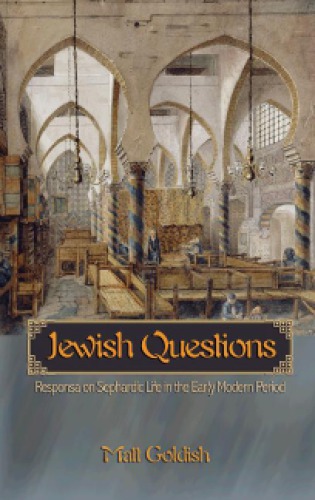

Most ebook files are in PDF format, so you can easily read them using various software such as Foxit Reader or directly on the Google Chrome browser.
Some ebook files are released by publishers in other formats such as .awz, .mobi, .epub, .fb2, etc. You may need to install specific software to read these formats on mobile/PC, such as Calibre.
Please read the tutorial at this link: https://ebookbell.com/faq
We offer FREE conversion to the popular formats you request; however, this may take some time. Therefore, right after payment, please email us, and we will try to provide the service as quickly as possible.
For some exceptional file formats or broken links (if any), please refrain from opening any disputes. Instead, email us first, and we will try to assist within a maximum of 6 hours.
EbookBell Team

4.1
10 reviewsIn Jewish Questions, Matt Goldish introduces English readers to the history and culture of the Sephardic dispersion through an exploration of forty-three responsa--questions about Jewish law that Jews asked leading rabbis, and the rabbis' responses. The questions along with their rabbinical decisions examine all aspects of Jewish life, including business, family, religious issues, and relations between Jews and non-Jews. Taken together, the responsa constitute an extremely rich source of information about the everyday lives of Sephardic Jews.
The book looks at questions asked between 1492--when the Jews were expelled from Spain--and 1750. Originating from all over the Sephardic world, the responsa discuss such diverse topics as the rules of conduct for Ottoman Jewish sea traders, the trials of an ex-husband accused of a robbery, and the rights of a sexually abused wife. Goldish provides a sizeable introduction to the history of the Sephardic diaspora and the nature of responsa literature, as well as a bibliography, historical background for each question, and short biographies of the rabbis involved. Including cases from well-known communities such as Venice, Istanbul, and Saloniki, and lesser-known Jewish enclaves such as Kastoria, Ragusa, and Nablus, Jewish Questions provides a sense of how Sephardic communities were organized, how Jews related to their neighbors, what problems threatened them and their families, and how they understood their relationship to God and the Jewish people.